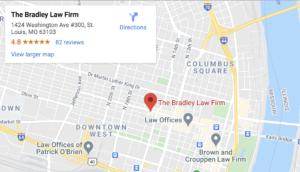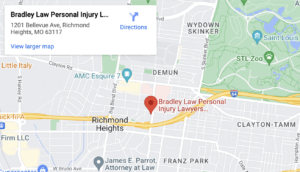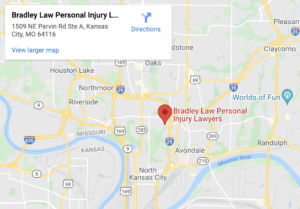
Breach of duty is the second legal element you must prove for a negligence claim. Negligence is the basis for many personal injury claims, including automobile accidents, premises liability claims, wrongful death, and slip and fall accidents.
Proving that the defendant breached the duty of care often involves the “reasonable person” standard. This standard changes depending on the facts and circumstances of the case.
Understanding how the legal elements of negligence work together to prove fault and liability can help you understand whether you have a personal injury claim.
Table of Contents
Creating a Duty Between Parties
A duty is created when a relationship between parties requires one or both parties to perform certain conduct. Proving that the defendant owed you a duty of care is the first legal element in a negligence case.
In personal injury cases, the duty of care generally involves one party acting with care to avoid injuring or harming another person.
For example, drivers have a duty of care to follow traffic laws and operate their motor vehicles safely to avoid accidents. A property owner has a duty of care to maintain their property to prevent injuries to guests and visitors. Restaurants have a duty of care to maintain safety measures that prevent customers from becoming ill after consuming the food.
What is a Breach of Duty?
A breach of duty is a failure to act with the level of care that a reasonable person would have used in similar circumstances.
In premises liability law, a breach of duty might exist if a store owner fails to repair damaged flooring, clean up a spill, or cover exposed electrical wires. A driver may breach the duty of care by exceeding the posted speed limit, driving under the influence of drugs, or failing to yield the right of way.
The breach of duty relies on the “reasonable person” standard. A jury decides what a reasonable person would have done in a similar situation as the one involving the defendant.
Reasonableness is measured by the facts of the case and what a person of ordinary discretion and cautiousness would have done given the same choices. Therefore, the standard for deciding breach of duty varies depending on the situation.
For example, a reasonable person would understand that running a red light is dangerous. It places everyone near the intersection in danger because a collision could result. Therefore, the jurors might decide a driver who runs a red light breached the duty of care owed to other individuals on the road.
However, determining that a defendant breached the duty of care is not sufficient to prove negligence. You must also link the breach of duty to your injury and damages.
Breach of Duty and Causation
Causation can be the most difficult elements in a personal injury case. The defendant could be guilty of breach of duty but not be responsible for your damages. You must prove that the breach of duty was a direct and proximate cause of your injury.
For instance, the defendant may have run a red light at the same time that you crashed your bicycle. However, if you crashed your bicycle because you hit a pothole, the defendant running the red light might not have caused your bicycle accident.
On the other hand, suppose you hit the pothole because you had to swerve out of the way of the car running the red light. In this case, the jury might find that the defendant’s breach of duty directly led to your bicycle crash.
You must also prove that you sustained damages because of the defendant’s conduct. In other words, you sustained physical injury, lost wages, medical bills, emotional distress, and other economic or non-economic damages because the defendant breached a duty of care.
Without evidence of causation and damages, you cannot recover compensation for a personal injury claim.
You Must File a Timely Claim
In addition to proving the other party was negligent, you must also file a timely claim to recover money for an accident or injury. Missouri’s statute of limitations restricts the time you have to file a personal injury claim.
Failing to file a claim before the deadline means the court may dismiss your case, even if you have evidence proving you deserve compensation for your injuries.
For most personal injury claims, the deadline to file a lawsuit is five years from the injury date. However, that deadline could be shorter in some cases. Therefore, it is generally in a victim’s best interest to talk with a St. Louis injury lawyer as soon as possible.
Waiting too long to seek legal advice could harm the outcome of your case. Understanding your legal rights is the best way to protect your right to fair and just compensation for injuries and damages.
Contact Our St. Louis Personal Injury Lawyers for a Free Consultation
You could be entitled to compensation if another person’s negligence or wrongdoing injured you. The St. Louis personal injury lawyers at Bradley Law Personal Injury Lawyers work with you to gather evidence proving the other party should compensate you for your losses, pain, and suffering, so contact us today to get help.




